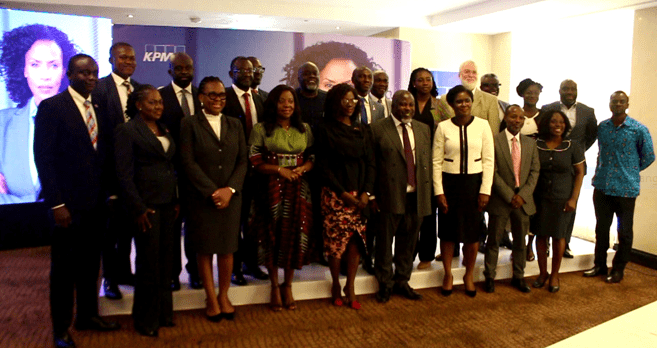By Wisdom JONNY-NUEKPE
A senior lecturer at the Department of Economics, University of Ghana, Dr. Priscilla Twumasi Boafo, has called on government to implement an incentive structure that encourages small & medium-sized enterprises (SMEs) and small firms to adopt Environmental, Social and Governance (ESG) practices.
She noted that such incentives will drive compliance and promote sustainable business operations across the sector.
ESG is a set of criteria used to evaluate a company’s operations and performance beyond traditional financial measures.
The ESG standards suggest a careful incorporation of environmental, social and corporate governance factors into companies’ investment analysis and decision-making processes.
However, Dr. Twumasi Boafo – speaking at the 2024 KPMG Africa CEO Outlook Report launch in Accra – said the ESG journey is a very arduous one because small firms and SMEs are currently more concerned about getting basic stuff in place to survive and not concerned about anything on the environment.
“These small firms are more concerned about how to pay their taxes, pay bills and, most importantly, arrive at their bottom lines – and are not worried about ESG and environmental sustainability,” she said.
She however admitted that despite companies not being too concerned about ESG, the adverse effects of climate change are with us.
“This is the reason why government should be the driving force in terms of creating incentives for businesses to embrace ESG. This is very critical, because climate change’s impact on businesses will be felt in the long-term,” Dr. Boafo noted.
According to her, large firms and companies which have already embraced ESG should make efforts and be the leaders advocating for inclusive adoption of this initiative, adding: “The incentive structure will encourage SMEs and small firms to get onboard and be motivated financially or in tax cuts, once there is proof that a firm is ESG-compliant in its operations”.
Equally, Managing Director-GCB Bank, Mr. Kofi Adomakoh – who was on the event’s panel, said ESG has come to stay and indicated that all stakeholders, including government, regulators, civil society organisations among others, are embracing it.
But he said education at the government level is very important to enable companies and organisations embrace and adopt it in management strategies.
“People have to see what the reward of ESG is. Organisations want to know the benefits and rewards of ESG – and that is what regulators must take up to ensure mass compliance,” he noted.
He said ESG compliance institutions in Ghana now have access to green finance, cheap finance and longer-term finance from banks.
He also admitted that though benefits of ESG are numerous, the standard is not easy to implement as it takes time, effort and holistic planning.
About the 2024 KPMG Africa CEO Outlook Report
Country Managing Partner of KPMG-Ghana, Mr. Anthony Sarpong, said the Report is a survey that is conducted by KPMG to gather views of CEOs across the globe, and Africa in particular.
He said this year the Report focused on four thematic areas, namely: Economic Outlook, Artificial Intelligence (AI) as an evolving technology, ESG and People & Talents.
He said from the Economic standpoint, KPMG projections indicate that 2025 will see more stability and growth in economies across the continent.










